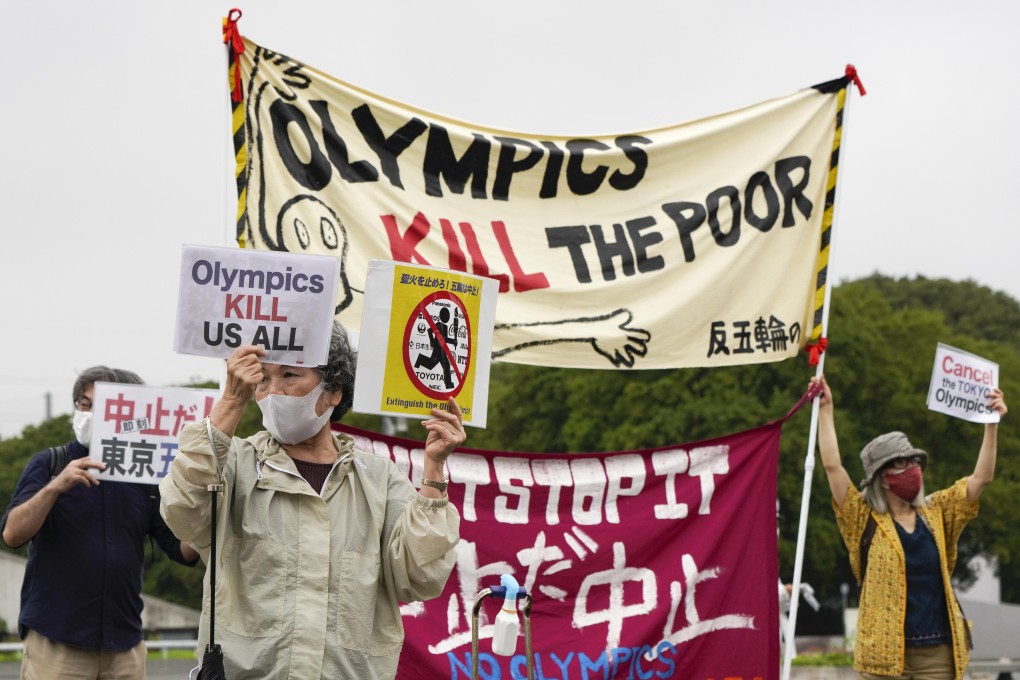Coronavirus: Japan’s move to host Tokyo Olympics shreds public consensus
- Japanese public voice concerns about the coronavirus at a time when only 16 per cent are fully vaccinated
- On the other hand, politicians hope to save face by holding the Games, while pressure on International Olympic Committee is mainly financial

On one side, the Japanese public face concerns about the coronavirus at a time when only 16 per cent are fully vaccinated. On the other side are politicians who hope to save face by holding the Games, and the International Olympic Committee with billions of dollars on the line.
“We have been cornered into a situation where we cannot even stop now. We are damned if we do, and damned if we do not,” Kaori Yamaguchi, a member of the Japanese Olympic Committee and a bronze medallist in judo in 1988, wrote in a recent editorial published by the Kyodo news agency. “The IOC also seems to think that public opinion in Japan is not important.”

02:25
Woman opposing Tokyo Olympics arrested after shooting water pistol at torch bearer
Support for going ahead seems to be split, and there’s persistent opposition. Much of that concern stems from qualms about the health risks.
Even though the government is now supercharging its vaccine drive after a slow start, the vast majority of the population still will not be immunised when the Games start in two weeks.
That has left the IOC and the Japanese government going through contortions to pull this off. Dr Shigeru Omi, the government’s top Covid-19 adviser, called it “abnormal” to hold the world’s biggest sports event during a pandemic.